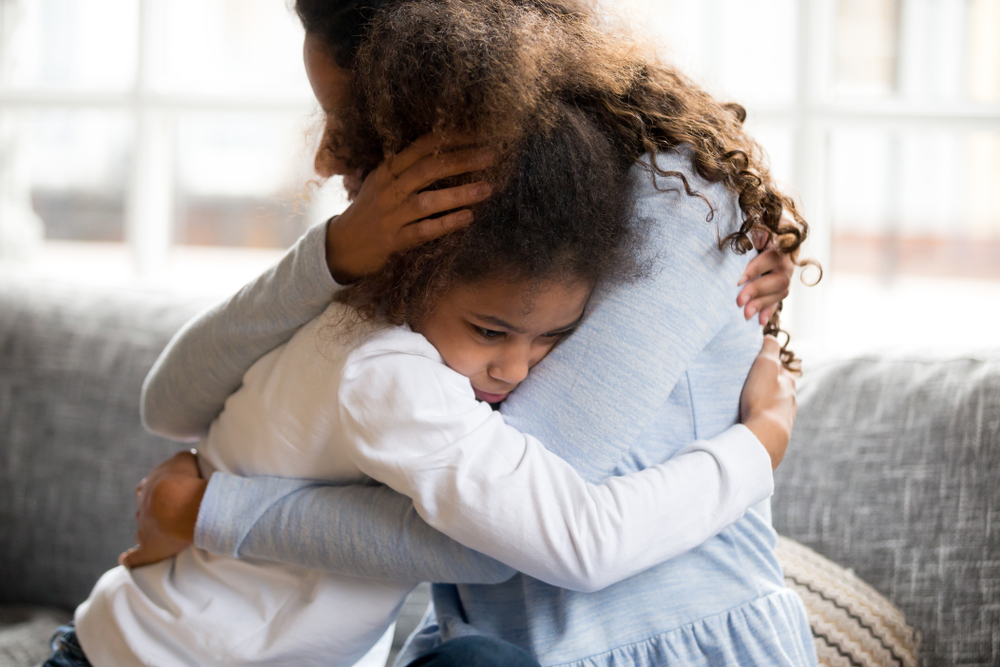Whats the Approach to Grief Management in Parenting?
Coping with grief as a parent means prioritizing emotional well-being and open communication. Find healthy ways to process emotions and seek support through therapy or support groups. Share feelings openly with your children to create a safe space for emotional expression. Approach communication with empathy and listen attentively to their emotions. Incorporate meaningful rituals for healing and create support networks for self-care. Honor memories and legacies with special traditions. By prioritizing compassion and coping strategies, you can cope with grief together with your children and build a strong foundation for healing.
Key Takeaways
- Engage in self-care activities for emotional processing.
- Seek therapy or support groups for coping strategies.
- Communicate openly with children about emotions.
- Create healing rituals to honor loved ones.
- Build a support system for nurturing self-care.
Understanding Grief in Parenting

To effectively navigate grief in parenting, it’s important to first understand the emotional process that accompanies loss and how it impacts your role as a caregiver. Parenting challenges can become especially overwhelming when coupled with the grieving process. It’s imperative to acknowledge that grief is a natural response to loss and that it can manifest in various ways, affecting not only you but also your children. Seeking support during this time is crucial. Remember, you don’t have to go through this alone.
Coping strategies play a significant role in managing your grief journey while parenting. It’s crucial to find healthy ways to process your emotions, whether through talking to a therapist, joining a support group, or engaging in self-care activities. By taking care of yourself, you can better support your children through their own grieving process. Remember that it’s okay to seek help and that prioritizing your well-being is crucial in providing the best care for your family.
Embracing Emotions Together
As a parent journeying through grief, it’s important to share your feelings openly with your children, showing them that it’s okay to express emotions.
Encouraging emotional expression in a safe and understanding environment can help both you and your children process grief together.
Creating a safe space where emotions are welcomed and embraced fosters a sense of togetherness and support during challenging times.
Sharing Feelings Openly
Encourage open and honest communication between you and your child, creating a safe space for both of you to share your feelings about the grief you’re experiencing. Parent-child communication is vital during times of grief. By fostering an environment where vulnerability is embraced, you can provide emotional support for your child while also allowing yourself to express your own emotions.
As a parent, displaying empathy in parenting is essential. Your child looks to you for guidance and reassurance during difficult times. By openly sharing your feelings, you demonstrate that it’s okay to express emotions and that it’s a natural part of the grieving process. This open dialogue can strengthen your bond and help your child feel understood and supported.
Encouraging Emotional Expression
Establishing a supportive environment where both you and your child can freely express your emotions is essential in guiding through the grieving process together. Validating feelings and promoting healing are vital aspects of encouraging emotional expression.
By acknowledging and accepting your child’s emotions, you foster empathy and create a safe space for them to share their thoughts without judgment. This validation helps them feel understood, which is an important step towards building resilience during the grieving period.
Encouraging emotional expression can also aid in the healing process by allowing both you and your child to release pent-up emotions. By openly sharing feelings, you demonstrate to your child that it’s okay to express their emotions, setting a positive example for healthy emotional processing.
This open communication strengthens your bond and creates a safe environment for coping with grief together. Remember, embracing emotions together is a powerful tool in guiding your child towards healing and resilience.
Creating Safe Space
Creating a safe space for both you and your child to openly embrace emotions together is essential in traversing the grief journey. Establishing a safe environment where open communication is encouraged allows for the expression of feelings and fosters a deeper connection between you and your child.
When creating this safe space, it’s vital to listen actively and without judgment, validating your child’s emotions and experiences. By demonstrating empathy and understanding, you show your child that their feelings are acknowledged and respected.
Encouraging open communication within a safe environment also involves being honest about your own emotions. Sharing your feelings with your child can help normalize the grieving process and show them that it’s okay to express their emotions freely.
Additionally, setting aside dedicated time for conversations and activities that promote emotional expression can strengthen your bond and provide comfort during difficult times.
In this safe space, both you and your child can navigate the complexities of grief together, finding solace in each other’s company and embracing emotions as a team.
Communicating With Compassion

In coping with grief as a parent, it’s important to approach communication with compassion and understanding towards your child’s emotions. Essential listening plays a significant role in this process.
When your child expresses their feelings, make sure to give them your full attention. Put away distractions, maintain eye contact, and show that you’re fully present. By actively listening, you validate their emotions and create a safe space for them to open up.
In addition to essential listening, it’s critical to respond empathetically to your child’s emotions. Acknowledge their feelings and let them know that it’s okay to experience grief. Use phrases like ‘I understand that you’re feeling sad’ or ‘It’s okay to be upset.’
Creating Rituals for Healing
To aid in the healing process for both you and your child, consider incorporating meaningful rituals that honor and remember the loved one who’s passed. Healing ceremonies can provide a sense of closure and comfort during this difficult time. Creating a special ritual, such as releasing balloons with messages to heaven or planting a tree in memory of your loved one, can help in the grieving process. These family traditions can serve as a way to connect with the past while also looking towards the future.
Support networks play an essential role in grief healing. Reach out to friends, family members, or religious communities for assistance in organizing these healing ceremonies. Their presence and support can provide strength and solace as you navigate through your grief journey.
Seeking Support and Community
Engaging with support groups and community resources can greatly aid in your journey of coping with grief as a parent. Finding solace in shared experiences can provide a sense of belonging and understanding during this challenging time.
Group therapy offers a structured environment where you can express your emotions openly and connect with others facing similar struggles. Virtual meetups provide a convenient way to engage with support groups from the comfort of your home, eliminating barriers like distance or time constraints.
Online forums offer a platform for ongoing discussions, advice, and a space to share your story anonymously if preferred. Local groups can provide in-person connections with individuals in your community who may offer additional resources and support. These interactions can combat feelings of isolation and offer a sense of camaraderie in dealing with the complexities of grief as a parent.
Nurturing Self-Care Practices
As you navigate the complexities of parenting while grieving, remember that prioritizing your mental health is essential.
Building support systems, whether through therapy, support groups, or trusted friends and family, can provide a strong foundation for your self-care practices.

Prioritizing Mental Health
Prioritizing mental health through nurturing self-care practices is essential in effectively managing grief while parenting. Your mental wellness and emotional balance play an important role in how you navigate the challenges of grief alongside the responsibilities of parenthood.
Taking care of your mental health involves acknowledging your feelings, seeking support when needed, and engaging in activities that bring you peace and joy.
To prioritize mental health, make sure you carve out time for self-care activities that rejuvenate your mind and spirit. This could include practices like meditation, exercise, journaling, or spending time in nature. Remember, self-care isn’t selfish; it’s a crucial component of maintaining your overall well-being.
Additionally, consider seeking professional help if you find yourself overwhelmed by grief. Therapy or counseling can provide you with valuable tools and coping strategies to navigate your emotions and support your mental health.
Building Support Systems
Building a strong support system is essential for nurturing your self-care practices while managing grief as a parent. During challenging times, such as coping with grief, having a network of people who understand and support you can make a significant difference in your ability to navigate through the pain.
Peer networks play a vital role in this support system, as they offer a space for you to share your experiences, receive empathy, and gain insights from others who may have gone through similar situations.
In addition to physical support networks, online forums can also be valuable resources for parents grieving the loss of a loved one. These forums provide a platform for connecting with individuals who can offer virtual support, guidance, and a sense of community, especially during times when face-to-face interactions may be limited.
Honoring Memories and Legacies

To honor memories and legacies in the midst of grief, consider creating a special tradition or ritual that celebrates the life and impact of your loved one. Legacy celebrations and memory preservation can be powerful ways to keep the spirit of your loved one alive.
You might consider organizing tribute activities that reflect their passions or values, such as planting a tree in their honor or creating a memory book filled with stories and photos. These remembrance rituals can provide comfort and a sense of connection, helping you and your family navigate the grieving process together.
Incorporating your loved one’s legacy into your everyday life can also be a meaningful way to honor their memory. You could start a tradition of sharing stories about them during family dinners or setting aside a specific day each year to commemorate their life.
Frequently Asked Questions
How Can I Help My Child Cope With Sudden Loss?
When helping your child cope with sudden loss, provide comfort through open communication and support networks. Engage in therapeutic activities together and teach coping strategies. Remember, being there for them is essential during this difficult time.
Is It Normal for Children to Grieve Differently?
Yes, it’s normal for children to grieve differently. Each child has their unique way of coping with loss. Providing emotional support tailored to their individual needs can help them navigate through the grieving process with greater resilience.
What Role Do Grandparents Play in Grieving With Children?
When dealing with grief, grandparents play a crucial role in supporting children emotionally. Through open communication and understanding family dynamics, their involvement can provide comfort and stability, helping kids navigate the complex emotions that come with loss.
How Do I Balance My Own Grief While Supporting My Child?
You must remember self-care balance during grief. Utilize personal support strategies to navigate emotions while supporting your child. Seek help, practice self-compassion, and communicate openly. Your well-being is essential in guiding your child through loss.
Are There Specific Resources for Grieving Children With Special Needs?
When supporting grieving children with special needs, remember to explore tailored resources like support groups and therapy. Utilize sensory strategies and effective communication to help them navigate their emotions and cope with loss in a way that best suits their unique needs.
Conclusion
As a parent journeying through grief, remember to embrace emotions, communicate openly, create healing rituals, seek support, practice self-care, and honor memories.
By understanding and managing grief in a healthy way, you can provide a strong foundation for your family to process and heal together.
Remember, you aren’t alone in this journey, and it’s okay to seek help when needed.
Stay connected, compassionate, and resilient as you journey through the complexities of grief in parenting.

Hey there! 👋 I’m a proud mom and passionate writer, sharing my parenting journey. 📝 Join me as I navigate the ups and downs of motherhood, offering tips, advice, and a sprinkle of humor along the way. 🌟







